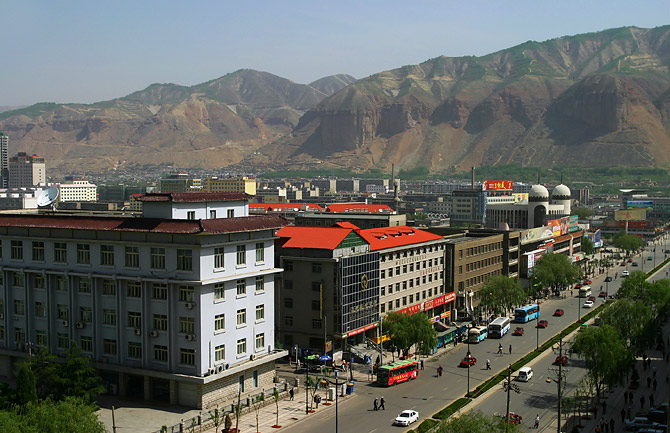Xining: A Glimpse into the Heart of Qinghai
Nestled in the northeastern part of the Tibetan Plateau, Xining stands as the capital of Qinghai Province in northwestern China. At an elevation of over 2,200 meters (7,200 feet) above sea level, the city not only offers breathtaking views of the surrounding mountains but also serves as a cultural and economic hub in the region. With a rich history dating back over 2,100 years, Xining has evolved into a dynamic metropolis that seamlessly blends tradition with modernity.
The city’s name, Xining, translates to “peace in the west,” reflecting its geographical location as it lies to the west of the provincial capital of Lanzhou. The Yellow River flows through the city, bestowing it with fertile plains and contributing to the agricultural prosperity of the region. Xining has long been a melting pot of various ethnicities, including Han, Tibetan, Hui, Tu, and Salar, creating a vibrant tapestry of cultures that define the city’s unique character.
One of Xining’s most notable landmarks is the Dongguan Mosque, an architectural marvel that dates back to the Ming Dynasty. This centuries-old mosque, with its intricate designs and historical significance, stands as a testament to the city’s role as a center for Islamic culture in China. Visitors are captivated by the blend of Chinese and Islamic architectural elements that adorn the mosque, making it a symbol of religious harmony.
The city is also a gateway to the Tibetan Plateau, making it a popular starting point for those embarking on a journey to explore the mystical landscapes of Tibet. Travelers often use Xining as a launchpad to acclimatize to the high altitude before venturing into the more remote regions of the plateau. The Qinghai-Tibet Railway, one of the engineering marvels of modern China, connects Xining to Lhasa, offering an awe-inspiring train journey that traverses high mountain passes and vast grasslands.
Xining’s cultural scene is alive with a myriad of festivals and events throughout the year. The Tibetan New Year, known as Losar, is celebrated with grandeur, showcasing traditional dances, vibrant costumes, and religious ceremonies. The city’s streets come alive with a kaleidoscope of colors, and the air is filled with the sounds of Tibetan chants and folk music, creating an immersive experience for locals and visitors alike.
For those interested in delving into the region’s history, the Qinghai Provincial Museum stands as a treasure trove of artifacts, documenting the diverse cultural heritage of Qinghai. Exhibits include ancient artifacts, traditional costumes, and relics from the Silk Road, providing a comprehensive overview of the area’s historical significance.
As a rapidly developing city, Xining has embraced modernity while preserving its cultural roots. The central business district is replete with skyscrapers, shopping malls, and a bustling urban atmosphere. Yet, just a short distance away, one can find traditional Tibetan markets, where nomads trade their goods and locals gather to share stories and laughter.
In conclusion, Xining is more than just a geographical location; it is a tapestry woven with threads of history, culture, and natural beauty. As a gateway to the Tibetan Plateau, it welcomes travelers with open arms, offering a glimpse into the heart of Qinghai. Whether one is captivated by ancient mosques, enchanted by the mystique of Tibetan traditions, or simply seeking adventure in the high-altitude landscapes, Xining is a city that promises a multifaceted and unforgettable experience.



